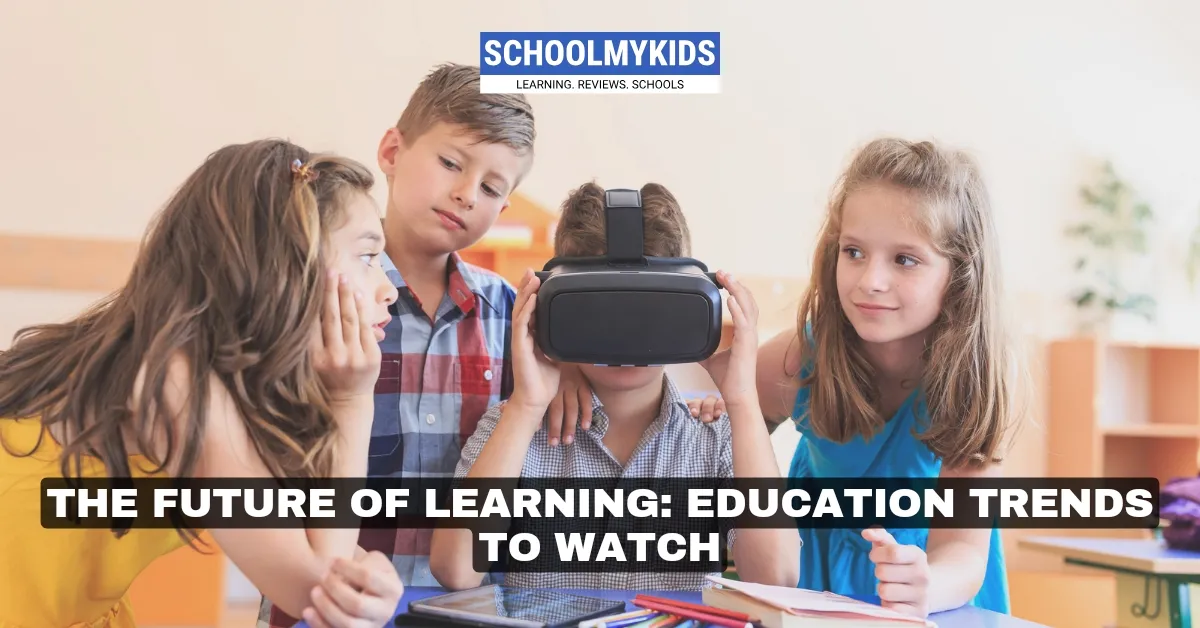As we move through 2024, the education landscape is undergoing significant transformations driven by technological advancements, evolving student needs, and societal changes. These education trends are not just fleeting; they are reshaping how education is delivered and experienced. The future of learning is increasingly characterized by innovative education methods that prioritize personalization, accessibility, and engagement. Looking ahead to 2025, we can expect these trends to deepen and expand, creating a more tailored educational environment.
Hybrid Classrooms: A New Norm
The hybrid classroom model, which combines online and in-person learning, has gained traction since the COVID-19 pandemic. This approach offers flexibility and caters to diverse learning styles. According to recent data, 60% of teachers in the U.S. have integrated some form of hybrid learning into their classrooms.
This trend is expected to continue growing as schools recognize the benefits of blending traditional teaching methods with digital tools. In 2024, schools are increasingly adopting platforms that facilitate this blend. For instance, Learning Management Systems (LMS) are being utilized to streamline course content delivery, assessments, and student engagement. By 2025, we can anticipate that hybrid classrooms will become standard practice across many educational institutions, allowing for a more tailored learning experience.
Artificial Intelligence: Personalization at Scale
Artificial Intelligence (AI) is set to revolutionize education by personalizing learning experiences for students. In 2024, AI-powered tools are already being used to create adaptive learning pathways that cater to individual student needs. For example, platforms like Squirrel AI leverage vast amounts of data to identify students' strengths and weaknesses, offering targeted interventions.
By 2025, we are likely to see AI playing an even larger role in education. It will not only assist in personalizing learning but also in automating administrative tasks like grading and feedback. This shift will free up educators to focus more on teaching and less on paperwork. Moreover, AI's ability to provide real-time analytics will help teachers identify struggling students earlier and intervene effectively.
Immersive Learning: Virtual Reality and Augmented Reality
Immersive learning technologies such as Virtual Reality (VR) and Augmented Reality (AR) are becoming more accessible in educational settings. In 2024, schools are beginning to integrate these technologies into their curricula for subjects like science and history.
For instance, VR can transport students to historical events or allow them to conduct virtual science experiments.
As we approach 2025, the costs associated with VR technology are expected to decrease further, making it feasible for more institutions to adopt these tools. The use of immersive environments not only enhances engagement but also helps students grasp complex concepts through experiential learning.
Focus on Mental Health and Well-being
The emphasis on mental health within educational settings has gained prominence in recent years. Schools are increasingly recognizing the importance of supporting students' mental well-being alongside their academic success. By 2024, many institutions have begun implementing programs focused on mindfulness practices and stress management techniques.
Looking forward to 2025, we can expect a more holistic approach to education that prioritizes mental health as an integral part of the learning process. This trend will likely lead to the development of comprehensive support systems within schools that address emotional and psychological needs.
Skill-Based Learning: Preparing for the Job Market
As job markets evolve rapidly due to technological advancements, there is a growing demand for skill-based education. In 2024, short courses and micro-credentials are becoming popular as learners seek specific skills relevant to their careers.
This trend reflects a shift from traditional degree programs toward more practical training that aligns with industry needs.
By 2025, it is anticipated that educational institutions will increasingly collaborate with industries to design curricula that focus on essential skills such as coding, data analysis, and soft skills like communication. This alignment will better prepare students for the workforce and ensure they possess the competencies required by employers.
Sustainability Education: A Growing Priority
With climate change becoming an urgent global issue, sustainability education is gaining importance in curricula worldwide. In 2024, schools are beginning to incorporate environmental education into various subjects. This includes teaching students about renewable energy sources and responsible resource usage.
By 2025, sustainability education is expected to become a core component of many educational programs. Students will be equipped with knowledge about environmental challenges and encouraged to engage in practices that promote sustainability both in their communities and future workplaces.
In summary, the future of learning and education looks promising as we witness these transformative trends taking shape in 2024 and beyond. As we look forward to 2025, it is clear that adaptability will be key for educators and institutions alike as they navigate this dynamic landscape. Embracing these education trends will not only enhance educational outcomes but also prepare future generations for the challenges ahead in innovative education practices.








Be the first one to comment on this story.